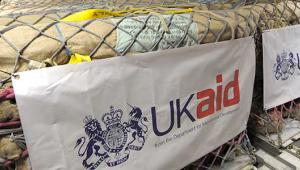When DfID’s most recent gender equality strategy was launched in 2018, the department said 66% (£4.2bn) of bilateral aid was spent on programmes with a gender equality focus – 71% more than in 2011, when it introduced its previous strategy in this area.
But the NAO said one-third of this spending had been classified incorrectly, when measured against OECD standards rather than the department’s own.
“Inaccuracy in DfID’s gender-marked data means that DfID does not have an accurate grasp of which of its programmes have a gender equality focus and how much it spends on them, limiting its ability to monitor progress against its 2018 Strategic Vision,” the report said.
“Individually, DfID’s programme interventions to improve gender equality are performing well and it is widely respected internationally for its broad range of influencing activity in this area... but there are gaps.”
The NAO found no overall long-term plan for assessing progress at “key points” between now and the strategic vision’s end in 2030, and that DfID needs to “make significant further progress” on management arrangements, in order to understand whether its programmes provide value for money.
Public Accounts Committee chair Meg Hillier congratulated DfID for its “ambitious vision to tackle gender equality by 2030”.
“However, good intentions are not enough,” she said. “DfID hasn’t set milestones to check if it is on the right track, or assessed how its local offices balance competing priorities.
“It doesn’t even have accurate information about which projects are supposed to be reducing gender inequality.”
DfID confirmed it will take forward some of the NAO’s recommendations, including by increasing the use of the OECD Development Assistance Committee’s gender marker for aid programmes, as well as by publishing a long-term plan containing milestones it hopes to meet as we approach 2030.
“The NAO rightly recognises the department’s work to promote girls’ education, challenge child marriage, end female genital mutilation and tackle sexual violence around the world,” a department spokesperson said.
“Our evidence-based approach allows us to quickly respond to constantly changing global challenges, such as coronavirus, so we can direct our life-saving support to wherever it is needed most.”













